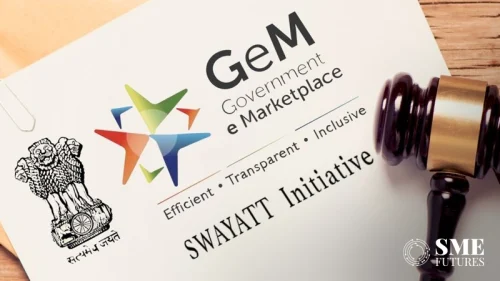Textile and apparel exporters have had to deal with the worst mass layoffs and factory closures during the crisis caused and subsequently exacerbated by the covid-19 pandemic.
But finally—after all these months, exports have witnessed a positive shift. India’s apparel exports rose by 10.22 per cent in September 2020 to $1,190 million from $1,079 million a year ago. Similarly, India’s neighbour Bangladesh, with its exports to Japan valued at $96.23 million saw a 3.95 per cent growth in September over the previous month. These numbers paint a positive picture of the textiles and apparel industry, which is slowly and gradually moving towards recovery.
The recovery from the huge fall of April this year to a 10 per cent rise in September corroborates industry’s belief that the apparel sector is already on its path to a V-shaped recovery, said Apparel Export Promotion Council (AEPC) chairman A Sakthivel.
Going the B2B way a survey of business buyers conducted by Digital Commerce 360 found that 22 per cent purchasing managers spent significantly more on B2B marketplaces during the pandemic. Textiles and apparel vertical marketplaces like Fibre2Fashion are leading the way in presenting ways industry players that are suitably tailored to the complex and nuanced world of B2B e-commerce.
Amid the pandemic, one platform that has been thoroughly dedicated to fuelling the advancement of its partners and helping exporters offset infrastructural inefficiencies is the F2FMart. This new initiative by Fibre2Fashion is a one-stop B2B digital fashion marketplace and has been helping its partners maximise their exports through innovative digital connectivity solutions. Well-known in the industry for its reliable validation and seller evaluation system, Fibre2Fashion helps ensure safe buyer-supplier relationships.
“The pandemic has imposed challenges of sustainability and growth on the entire supply chain, F2FMart can help businesses gather momentum through its personalised buying, innovative features and marketing tools to enable exporters capture the international lost ground in the current—more complex—landscape,” said Adi Kapadia, Head Ecommerce at Fibre2Fashion.
“ Moreover, what makes F2FMART a clear market leader is service to boost B2B trade—Bulk discounts, Online Sampling, Trusted payments and many more, coupled with its expertise and role in successfully closing deals between buyers and suppliers” adds Kapadia, Head Ecommerce at Fibre2Fashion.
Although overcoming the hurdles will not be easy, businesses that seek strategic partnerships to meet demand and reduce lead times will be able to recover quicker than others. And this is where F2FMart comes into the picture.
Reaping from Global Markets While many businesses are well positioned in the raw materials or the production stages of the textiles and apparel global value chain, they are not able to scale up their exports in the absence of right marketing, branding and sales tools. Therefore, with access to those tools, such players can now reap more dividends from global markets. F2FMart not only enables businesses to do that, but a lot more while simultaneously helping reduce buyer-supplier relationship complexities.
Anurabh Dhar, Owner, Elysian Fashions, and a merchant associated with Fibre2Fashion said, “I am quite pleased with the Fibre2Fashion team in providing valuable leads and hand-holding during the entire process. I have been a privileged member since July this year and have already bagged an international deal with their help.” With over 100 merchants and MSMEs on board so far, with a total estimated inventory of Rs 500 million, F2FMart has already partnered with leading manufacturers Mothercare and Zalando from the UK, PDS Trading Shanghai, India-based Global Textiles, Manisha Fashion, Anjali Fabrics, and Spinning King, among others.
With many regions across the world now facing a second wave of the coronavirus pandemic, now is the time for businesses to forge new collaborations and adopt out-of-the-box approaches that can help them adapt to the shifts. Companies that are flexible and responsive in their decision making will be poised to seize emerging growth opportunities in the next normal.











